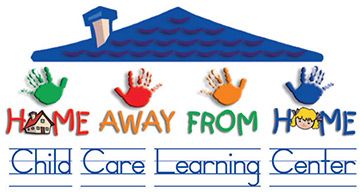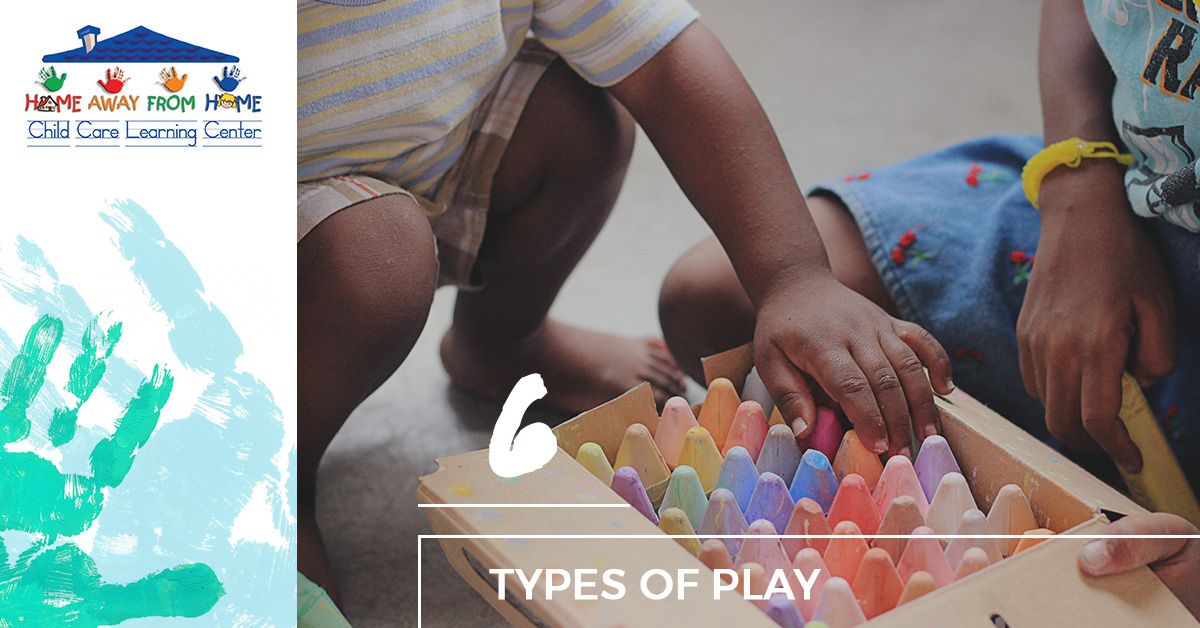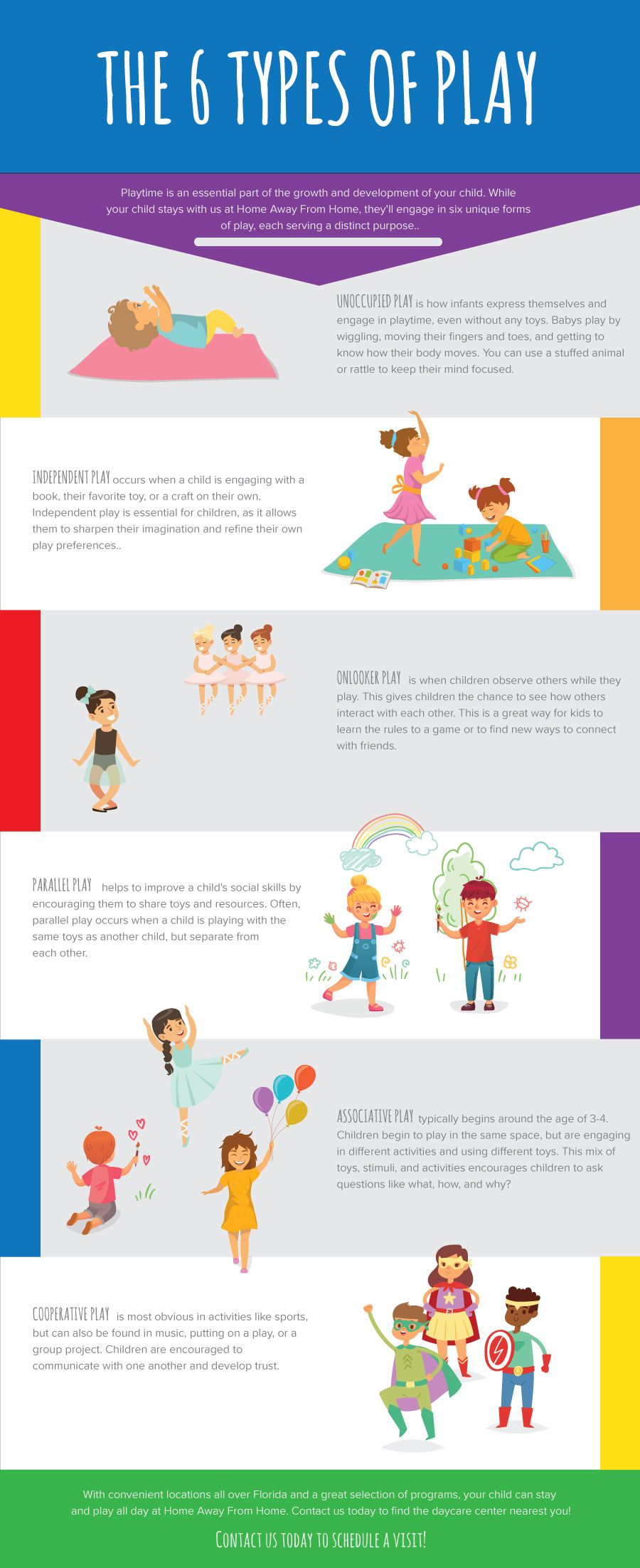When your children are growing up, you buy them stuffed animals, blocks, baby books, and other toys that keep them busy. But these toys do so much more than just keep them entertained. However old you child is, having an item in their hand can help with various aspects of development, from hand-eye coordination to learning space and distance. But there are several benefits to play, and there are even different types of play that will help your son or daughter grow and learn.
At Home Away From Home in the North Miami area, we are passionate about providing a daycare center that focuses on learning and development. Here are some of the types of play that we make sure your child experiences throughout their day.




